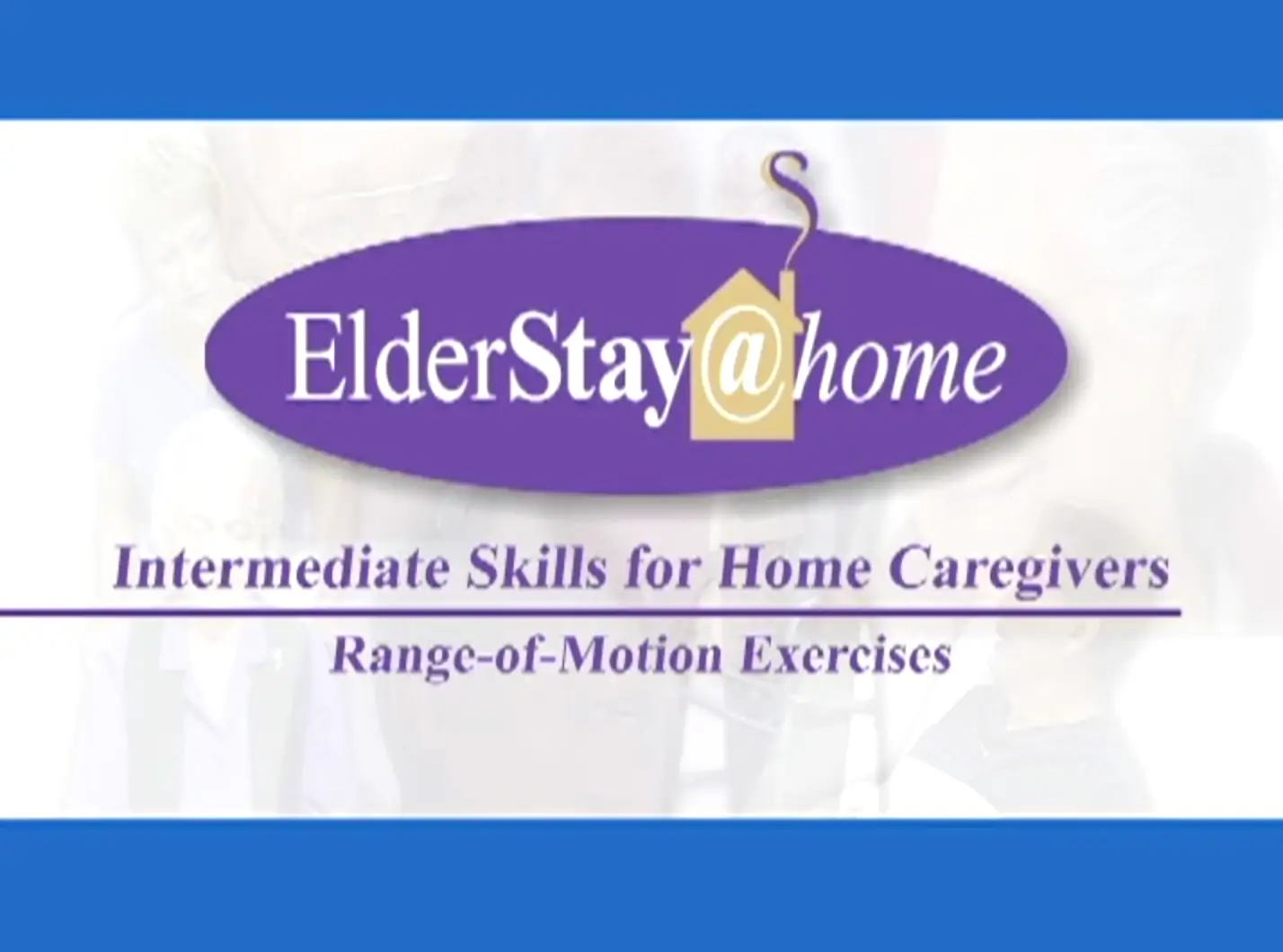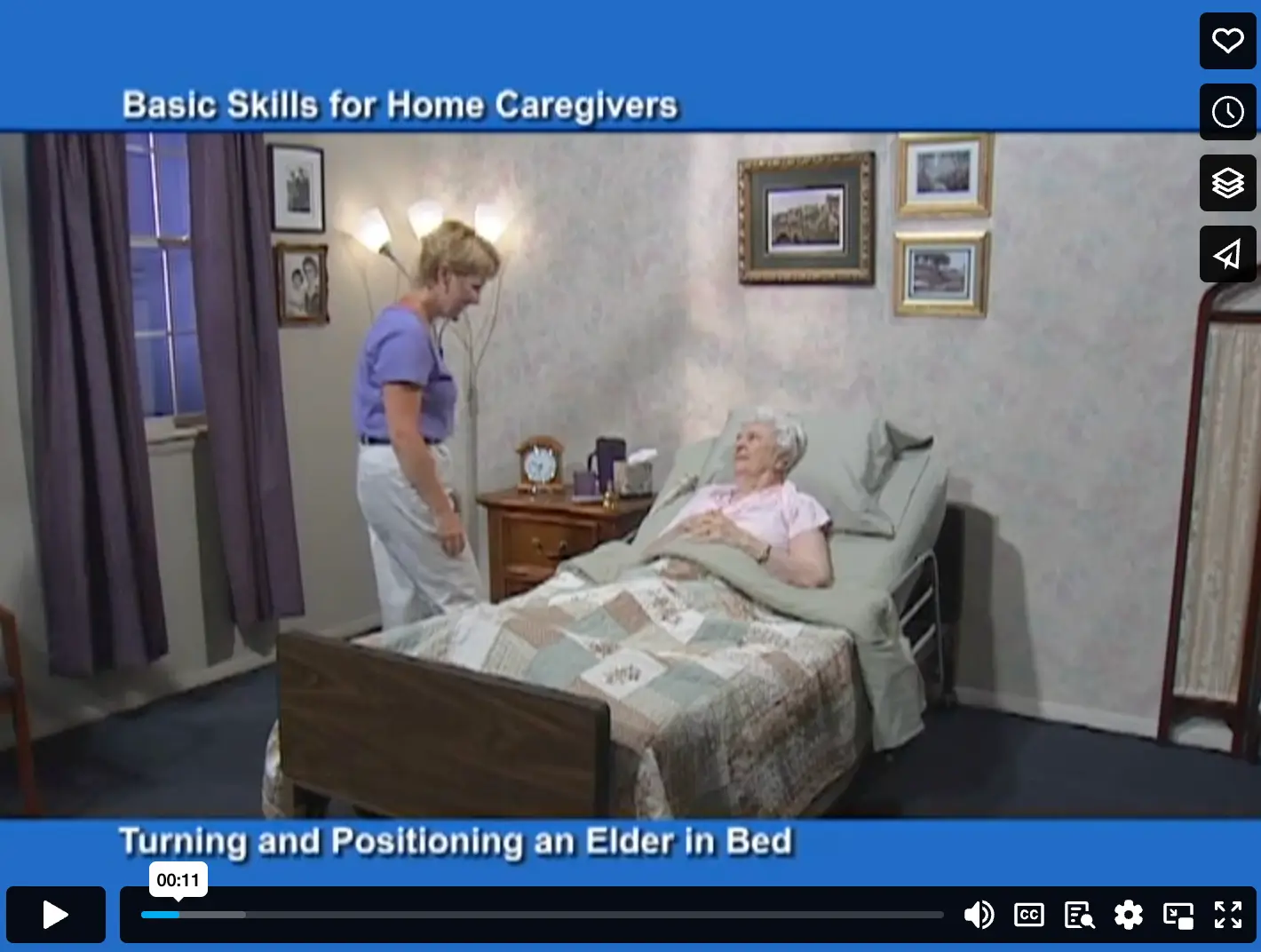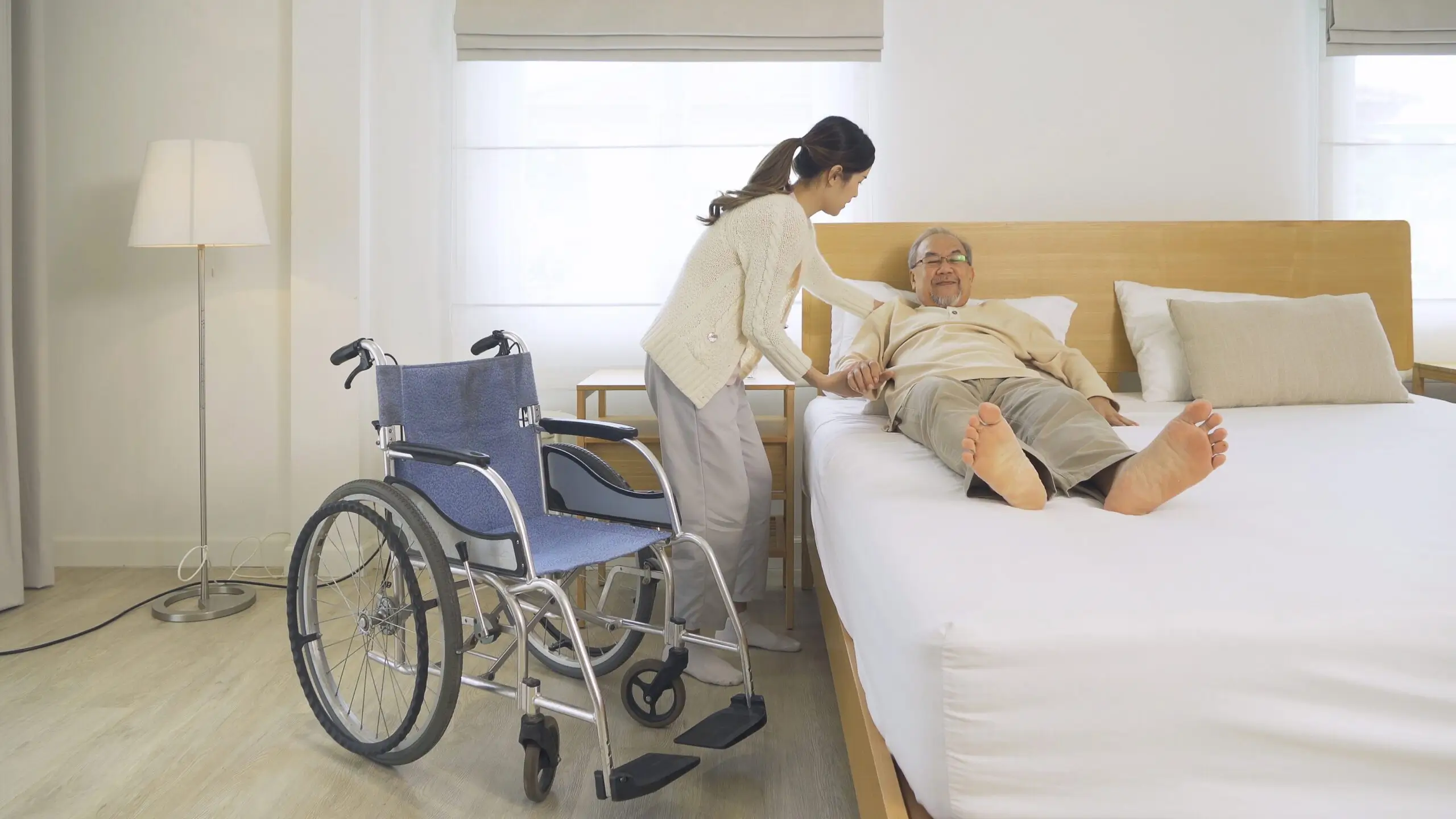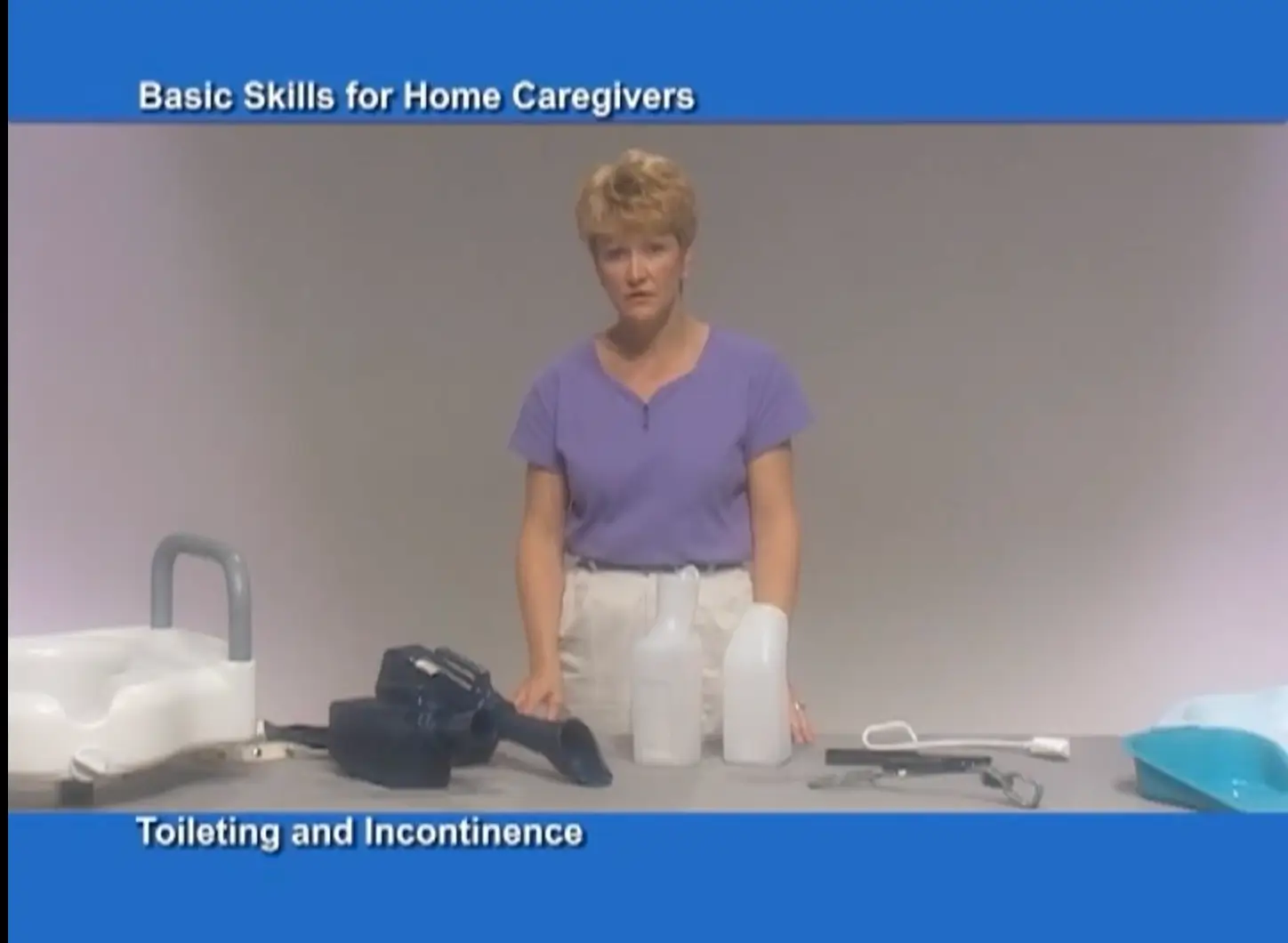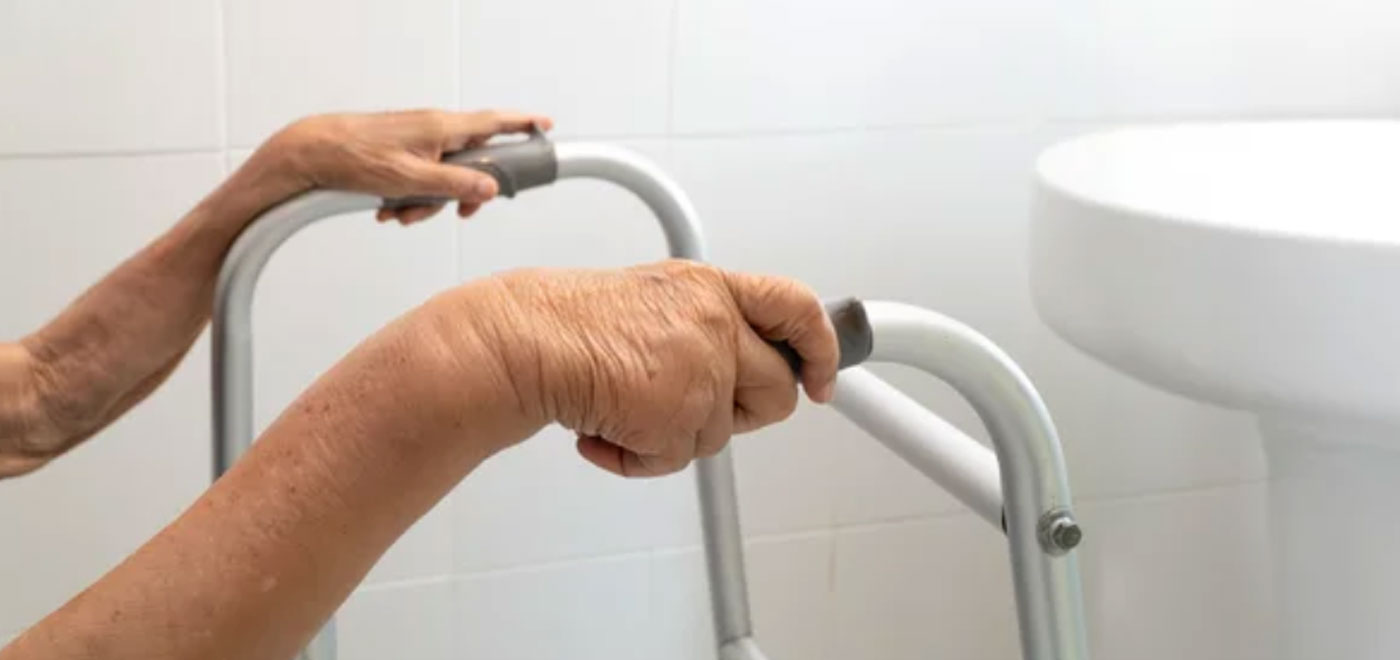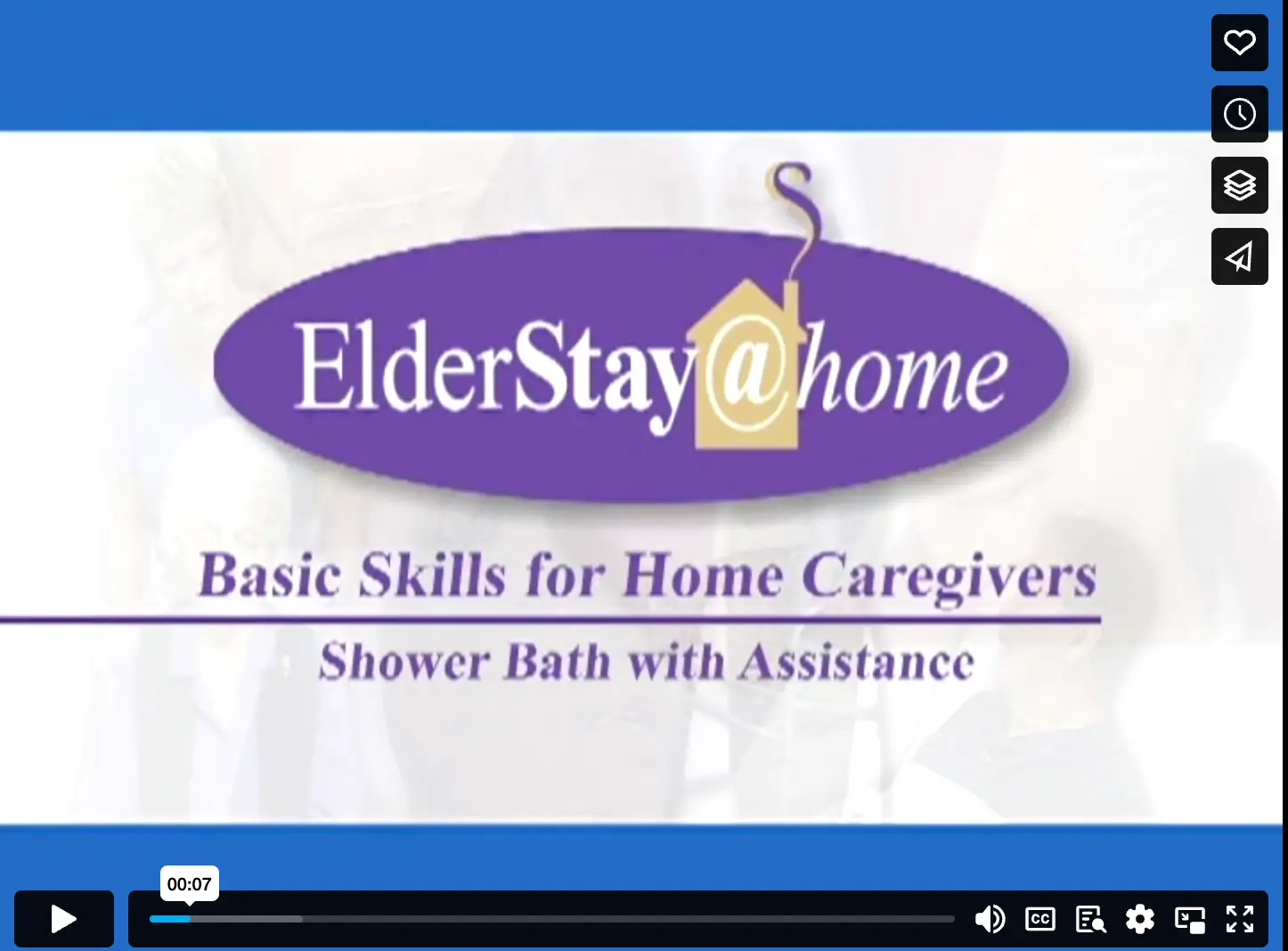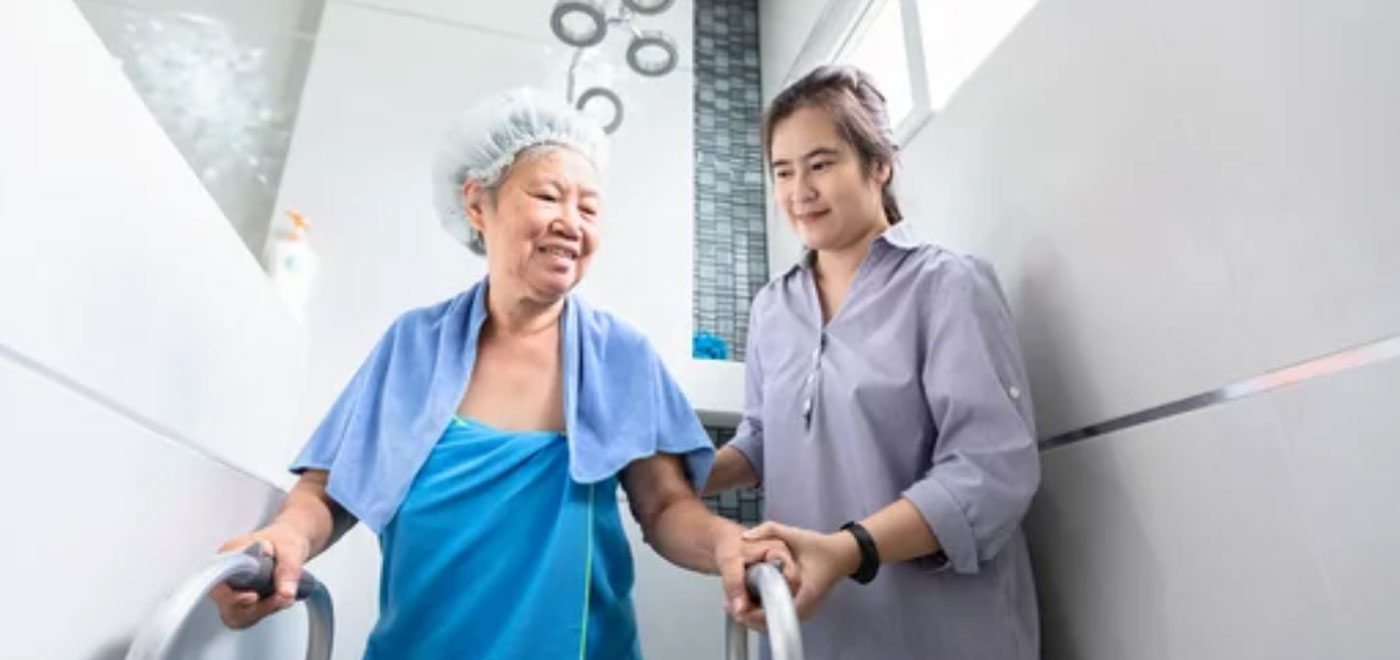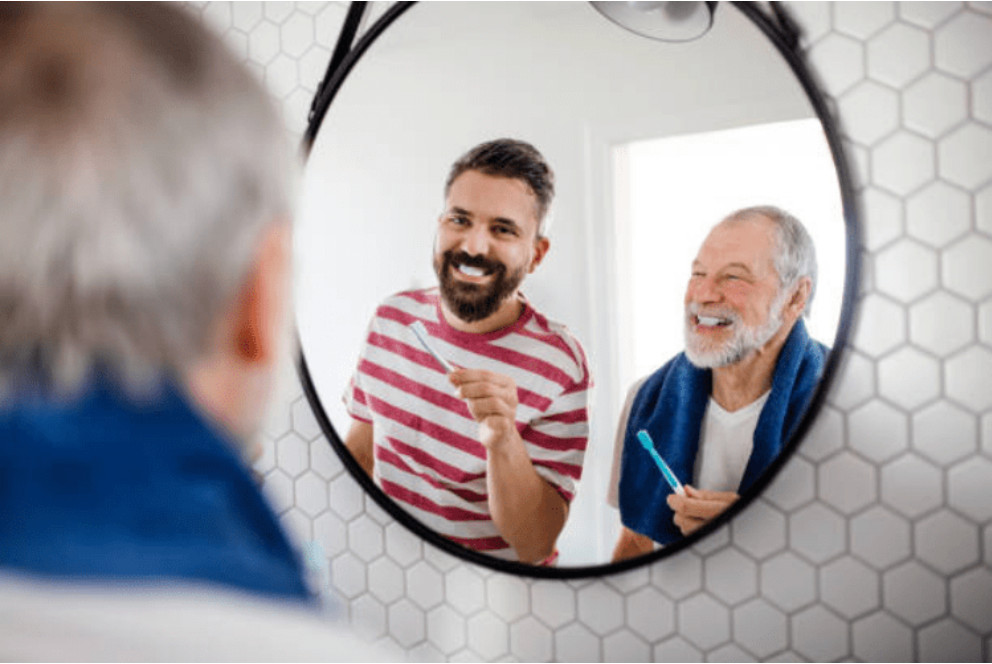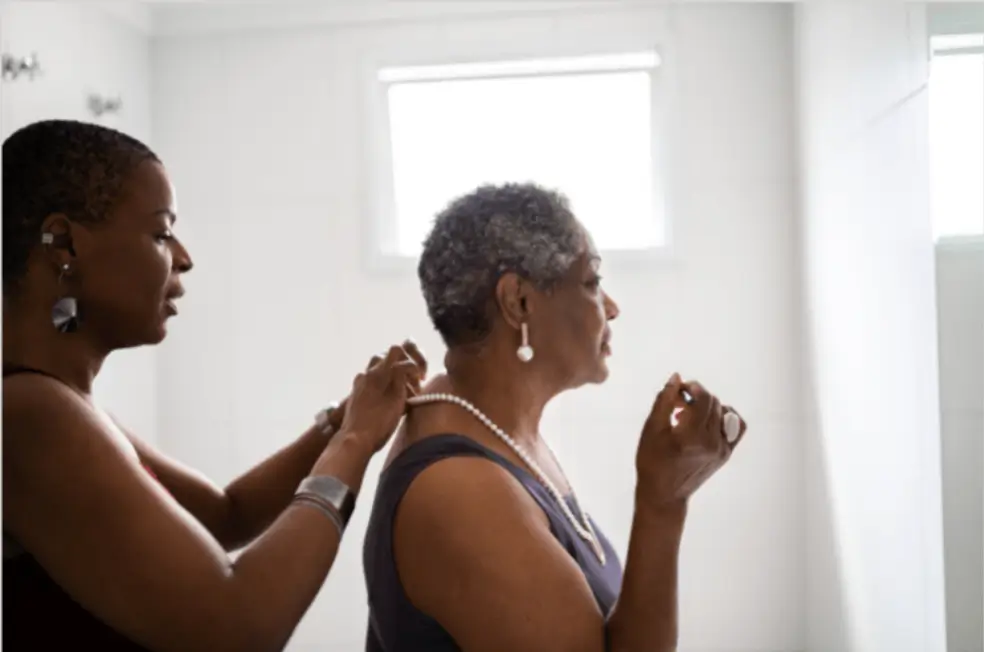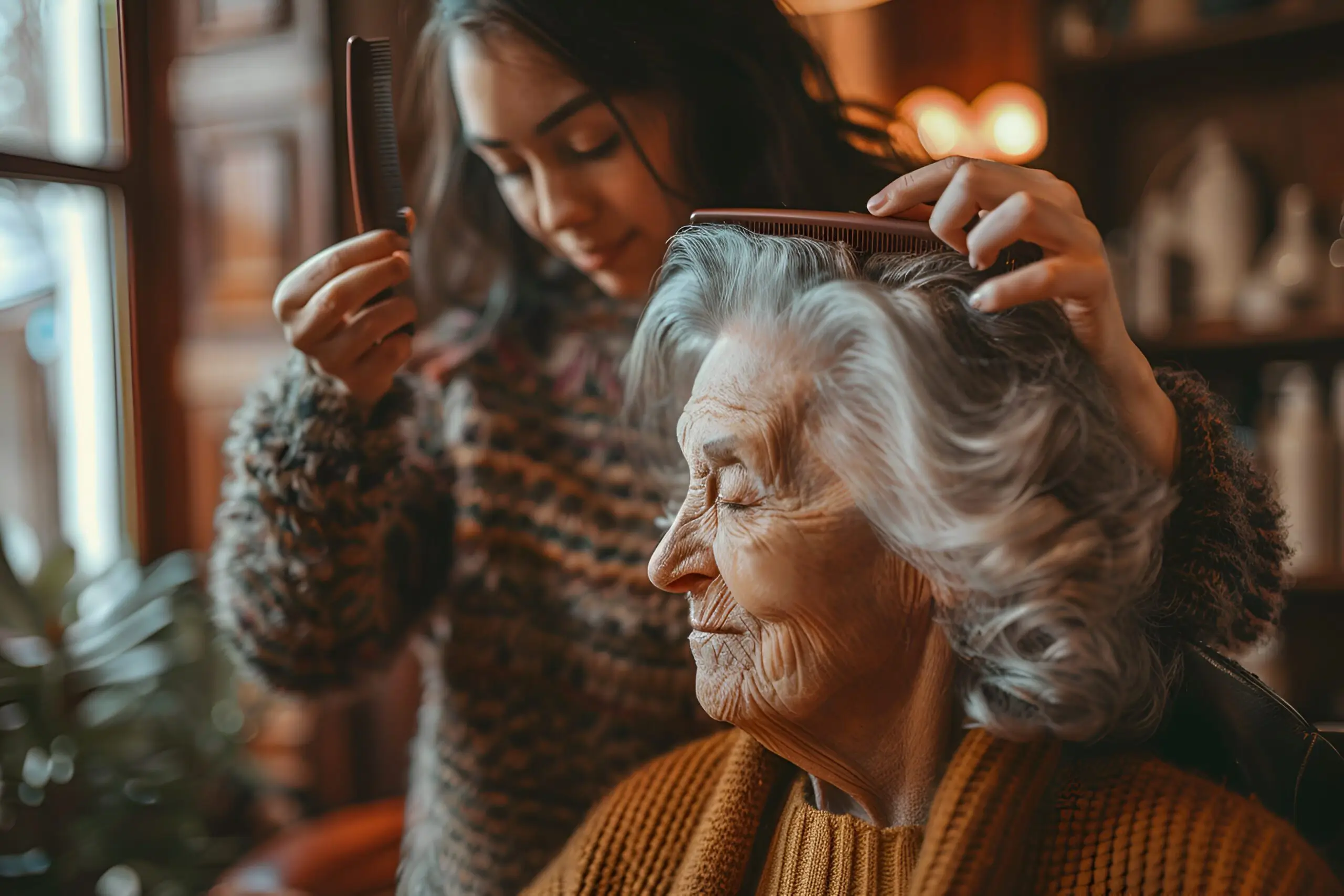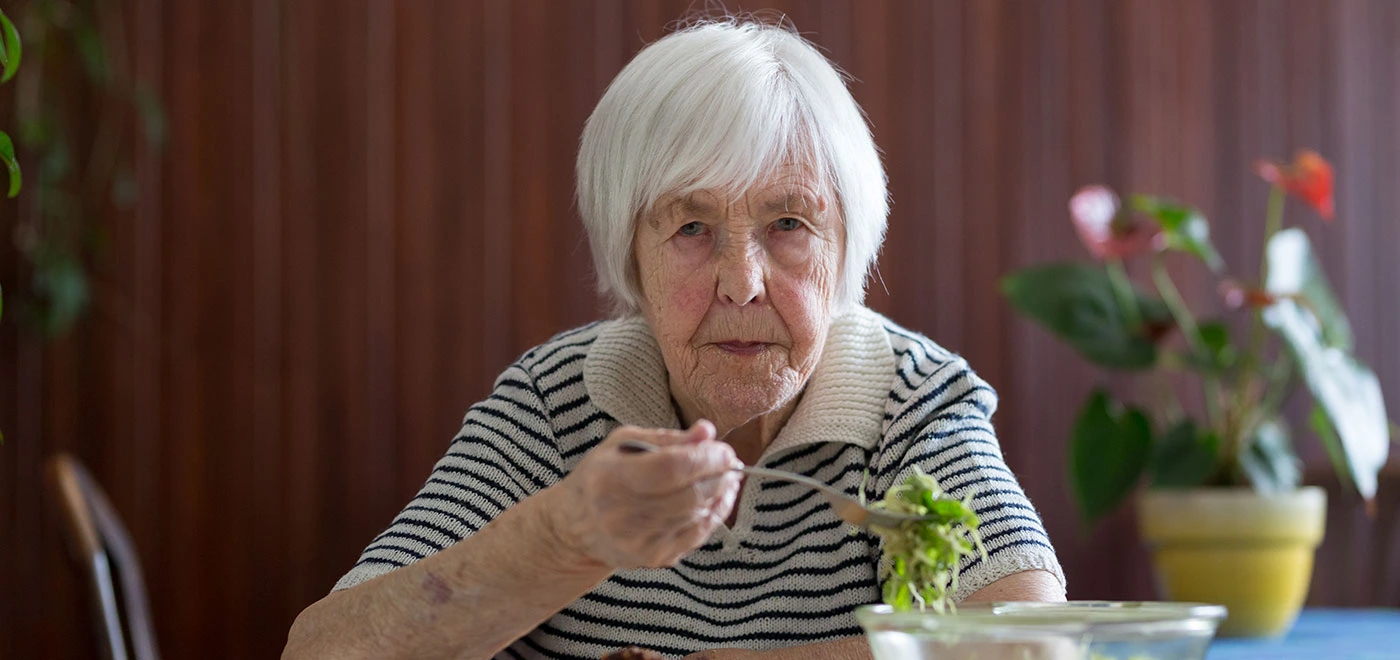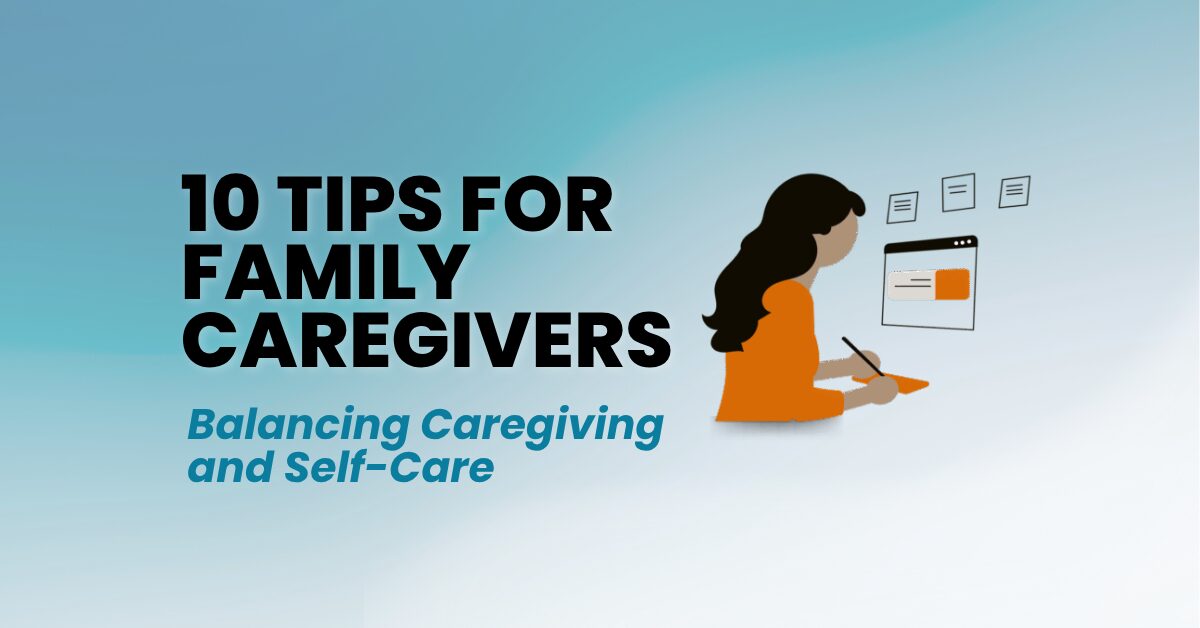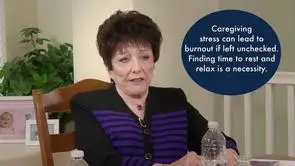Around the Clock Caregiving
Around the Clock Caregiving
Day-to-Day Activities
Helping your loved one with many day-to-day activities can be incredibly overwhelming. An estimated 60% of family caregivers assist their loved ones with activities of daily living (ADLs). These day-to-day activities include eating, bathing/showering, grooming, mobility, and using the toilet and we know how challenging it can be for caregivers. Here you can listen to other caregivers describe their day-to-day activities, share your own advice, or click on the activities below for more help and answers you can use.
Tips for Caring at Home
Range of motion exercises are vital techniques that caregivers can use to help maintain or improve joint flexibility in care recipients. Whether caring for someone recovering from surgery, managing a chronic condition, or dealing with limited mobility, understanding how to properly perform these exercises can significantly improve quality of life and prevent complications. [...]
Proper turning and positioning of bedridden elderly patients is a critical aspect of caregiving that directly impacts their health, comfort, and quality of life. When an elderly loved one is confined to bed due to illness, injury, or limited mobility, knowing the correct techniques for positioning bedridden elderly can make a significant difference [...]
If your loved one needs assistance getting in and out of a car or chair, you understand that helping loved ones move can present significant challenges. Whether you're managing bed to wheelchair transfers, assisting with standing from a seated position, or dealing with resistance to movement, these situations require careful planning and proper technique. Safe [...]
Managing incontinence and toileting needs is among the most challenging yet essential aspects of caregiving. Whether you're caring for an elderly parent, a disabled family member, or someone with medical conditions affecting bladder or bowel control, understanding how to address these needs with dignity and effectiveness is crucial for both the care recipient's [...]
Understanding Toileting Challenges in Dementia Care Helping a loved one with dementia use the toilet can be one of the most challenging aspects of caregiving. As dementia progresses, individuals often experience loss of bladder and bowel control, particularly in the later stages of the disease. This change can create discomfort and embarrassment for both the [...]
Providing bathing assistance is one of the most intimate and challenging aspects of caregiving. For many family caregivers, helping a loved one with bathing can be both physically demanding and emotionally complex. Whether you're caring for an elderly parent, a disabled spouse, or someone recovering from surgery, understanding how to help someone bathe [...]
Providing bathing assistance for seniors can feel challenging for both caregivers and older adults, but maintaining proper hygiene is crucial for health and well-being. These comprehensive bathing tips for older adults will help you create a safe, comfortable, and dignified bathing experience that respects your loved one's independence while ensuring their cleanliness and safety. How [...]
Today, more people with Alzheimer’s and dementia stay in their own homes—not just because they want to, but because financially they can’t afford to live in a care facility. While you want your loved one to have the comfort of living at home, you need to make sure the environment is safe too. The [...]
The Importance of Dignified Dressing Assistance for Seniors Dressing older adults requires patience, understanding, and the right approach to maintain their dignity while ensuring comfort and safety. As our loved ones age, physical changes such as arthritis, reduced mobility, or balance issues can make getting dressed challenging. However, with proper techniques and adaptive clothing [...]
Helping elderly loved ones with personal hygiene for seniors can feel challenging, but maintaining proper grooming is crucial for their physical health, emotional well-being, and dignity. This comprehensive caregiver grooming guide provides practical strategies to assist seniors with grooming while preserving their independence and comfort. Whether you're caring for someone with dementia or helping an [...]
Over a lifetime the average American spends about three years eating. That's a lot of meals. By the time you've reached late life, food may have lost some of its appeal. There are a variety of reasons why people lose their appetites as they age: Badly fitting dentures, gum disease, or dry mouth can make [...]
Why Hydration Matters for Dementia Patients Our bodies are over 50% water, essential for blood circulation and organ function. While dehydration is uncommon in younger adults, it's alarmingly prevalent in older individuals, particularly those with Alzheimer's disease or related dementias. Most seniors experience at least mild dehydration regularly due to medication side effects and deliberately [...]
The kitchen is the heart of most families’ homes. Now that you have a family member with dementia, you want to keep the kitchen as safe as it can be. Kitchen countertops and cabinets are filled with dangerous items - poisonous cleaning products, sharp knives and scissors, and heavy pots and pans. You will need [...]
Your loved one with Alzheimer’s disease may wander off for a variety of reasons. Wandering may be due to stress or fear, boredom, or searching. They may wander off trying to fill a basic need, like hunger or a need to go to the bathroom. Sometimes they are reliving their former lives, believing that they [...]
People with Alzheimer's disease frequently experience sleep disorders, particularly as the condition progresses. These sleep disturbances in Alzheimer's disrupt not only the health and well-being of the individual but also significantly impact family caregivers, whose own rest is often interrupted by their loved one's nighttime wakefulness and wandering. For family caregivers, managing Alzheimer's sleep problems [...]
Caring for Yourself
You pour your heart into caring for someone you love—but who's caring for you? Being a family caregiver often feels like putting everyone else's needs first while your own take a backseat. Taking care of yourself isn't selfish; it's essential. These ten practical tips will help you weave self-care into your daily routine, making [...]
Caregivers share the assorted ways they find time to relax and recharge. Claudia, Caregiver for Mother, 12 Years, Texas: You have to cordon out a little bit of space and a little bit of time to refresh and take care of yourself so that you can take care of him better, in [...]
Difficult Emotions are Normal:
Caregiving isn’t easy. The day-to-day demands and stress take a toll. That toll can leave you feeling a range of challenging emotions. These feelings can leave us doubting our abilities to care for our loved ones, but the most important thing to know is that you are not alone.
What do these emotions look like?
- Anger at your loved one or other members of the care team.
- Frustration
- Sadness
- Uncertainty
The range of emotions you may be feeling can be a sign of depression and other mental health issues. Take a screening to find out more.
Community is Key!
Support Groups! Finding a community of support can be key in realizing you’re not alone and can provide a safe space where you can share and ask questions of your peers.
- Find out what kind of support group is right for you.
- Determine if an in-person support group or an online forum meets your needs.
- There are a wide range of Facebook support groups as well, these are all independently managed but you can locate groups based on different subjects and themes, including your loved one’s condition, your region, and your role as a family caregiver.
What makes a support group successful?
- A safe haven for sharing true feelings
- A place to make new friends
- Information about resources and coping mechanisms
- Advice on what lies ahead
- Help in dealing with family members
Where to find a group?
- The social work department of hospitals
- Adult daycare centers
- Voluntary organizations that deal with your loved one’s condition,
- i.e., ALS Society (Amyotrophic Lateral Sclerosis), MSSociety (Multiple Sclerosis), United Cerebral Palsy, etc.
- Area Agencies on Aging
- Your faith community
- Parent to Parent USA
- Your physician’s office
CAN’s Community is an online Facebook Group for caregivers that allows for a space free of stigma and fear.
Social Media Groups and Accounts! You can find a wide range of caregiver support groups on platforms such as Facebook. These are independently managed and monitored and may be segmented based on the disease state of your loved one, your region, or even a local place of worship or community-based organization. This is a great way to integrate this caregiver conversation into a platform you may already be frequenting.
Being a caregiver can feel isolating. Even with friends and family around, they may not be able to understand the unique challenges of your role and may not be able to answer tough questions you have.
That’s where CAN’s Caregiver Help Desk comes in. Connect with a caregiving expert to find a listening ear and the support you need. CAN’s Caregiver Help Desk is an on-demand resource you can utilize in a way most convenient to you – call, chat, or e-mail – to connect with caregiving experts to find answers and support in your specific circumstance.
Call (855)227-3640 or visit to connect via chat or e-mail.

